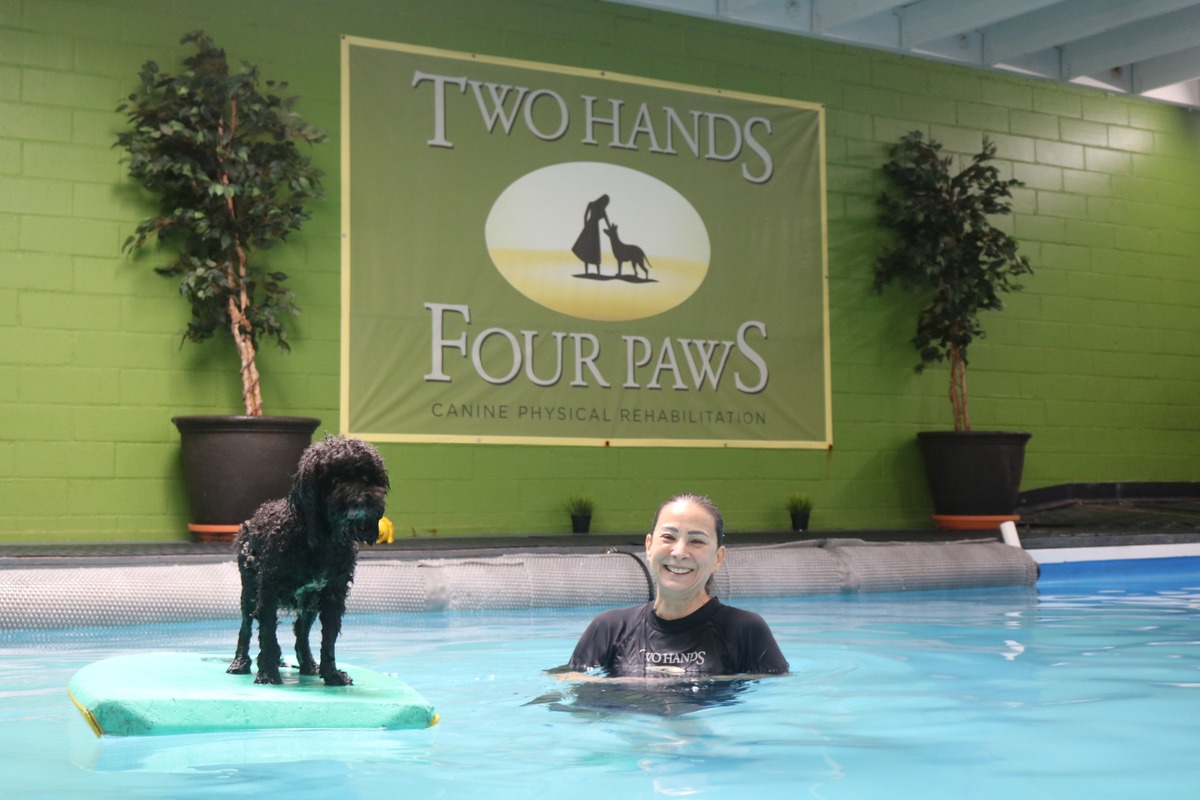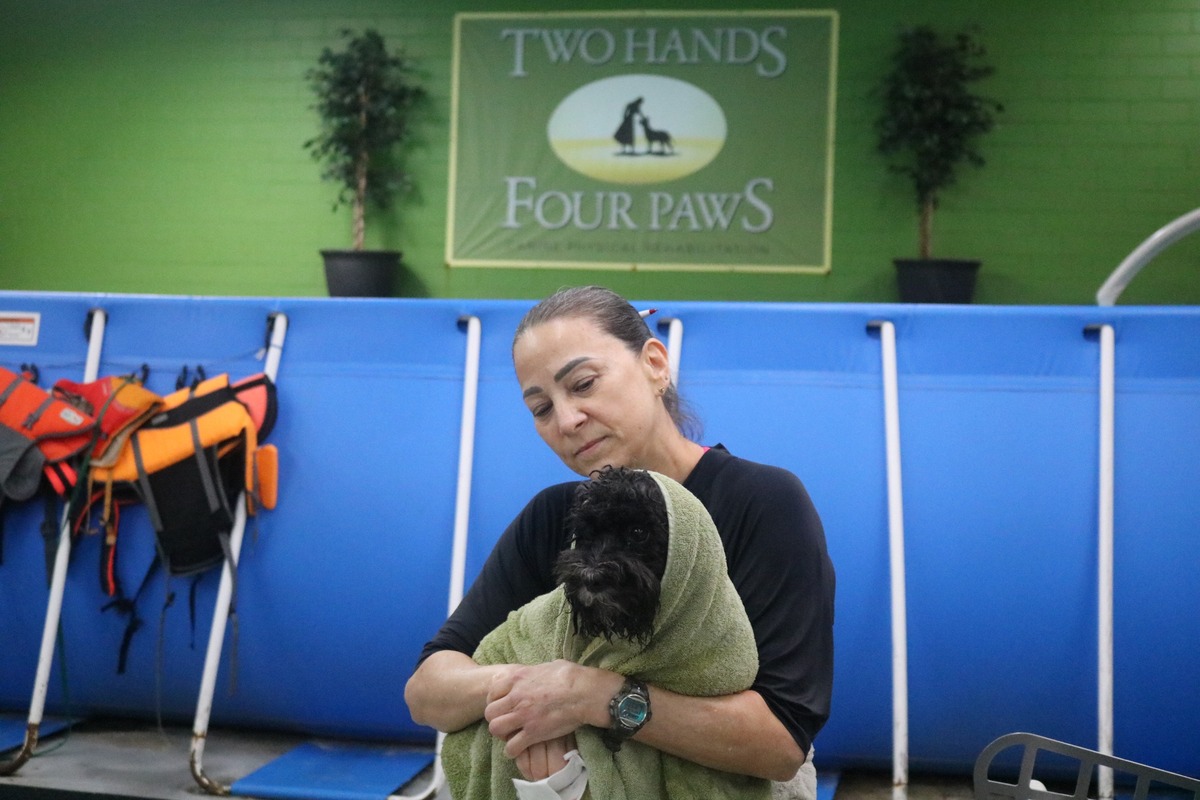Many of the same techniques used to rehabilitate a pet after surgery are great for actually preventing surgery.
 Let’s say, for example, that you own a breed of pet such as the Labrador Retriever who has a propensity for hip dysplasia. By starting your pet early on with canine rehabilitation exercises such as sit-to-stands and sideways walking, and employing hydro-therapy in the form of swimming and/or the underwater treadmill, you build strength in your pet’s rear end and hips. Couple this with regular animal massages to maintain flexibility and it’s possible to not only keep your dog with hip dysplasia pain free, but functioning at full capacity without surgery.
Let’s say, for example, that you own a breed of pet such as the Labrador Retriever who has a propensity for hip dysplasia. By starting your pet early on with canine rehabilitation exercises such as sit-to-stands and sideways walking, and employing hydro-therapy in the form of swimming and/or the underwater treadmill, you build strength in your pet’s rear end and hips. Couple this with regular animal massages to maintain flexibility and it’s possible to not only keep your dog with hip dysplasia pain free, but functioning at full capacity without surgery.
And what if your pet’s overweight? Just 5 extra pounds puts added strain on your pet’s joints and muscles. Which can lead to injury and pain. At Two Hands Four Paws, we want to prevent this from happening. We know how hard it is to resist your pet’s “I’m dying of starvation” face, so our therapists will work with you to come up with an eating and exercise plan that works for both of you. Which means Fido slims down without turning you into a guilty ball of anxiety.
 Preventative care, like animal rehabilitation therapy, is superb for increasing strength and range of motion in your pet’s muscles and joints. Which is ideal for the older pet. Geriatric pets suffer from a number of conditions such as arthritis, disc pain and joint stiffness that are simply due to the fact that they’ve walked this earth for 10, 12, 14+ years. Rehabilitation won’t restore them to babyhood, but it will sure put a spring back in their step.
Preventative care, like animal rehabilitation therapy, is superb for increasing strength and range of motion in your pet’s muscles and joints. Which is ideal for the older pet. Geriatric pets suffer from a number of conditions such as arthritis, disc pain and joint stiffness that are simply due to the fact that they’ve walked this earth for 10, 12, 14+ years. Rehabilitation won’t restore them to babyhood, but it will sure put a spring back in their step.
Last, with the increasing popularity of animal agility trials, field trial competitions and sports such a Flyball and dock diving, many pets and their guardians are relying on preventative canine rehabilitation exercises to keep in shape. Like all peak performance athletes, it takes increased strength and flexibility to stay on top of your competition. Of course, if your pet is more prone to a little frisbee in the park, Two Hands Four Paws can help with that too.
Call us today at 310-475-8555 to find out how preventative care therapy can help your pet lead a healthier, happier life. You can also click here to read an article Leslie has written on senior pets and weight.
